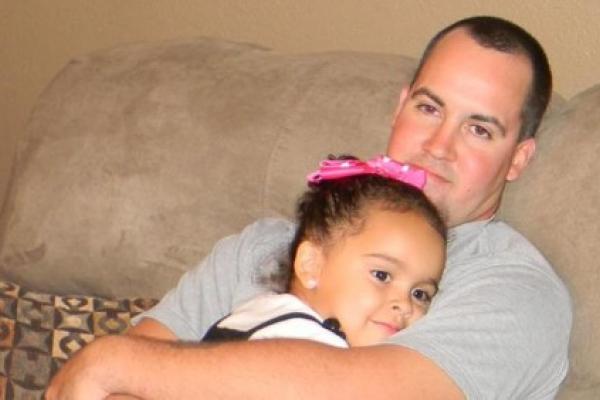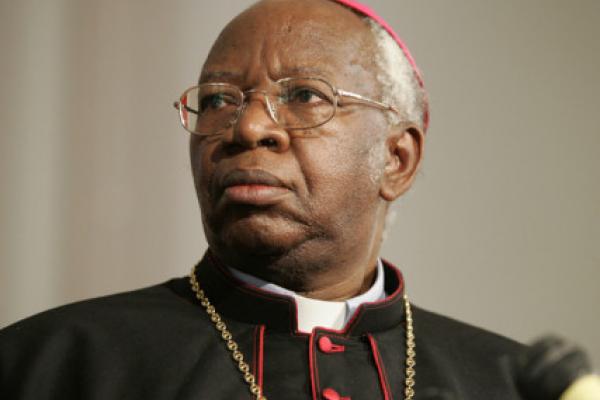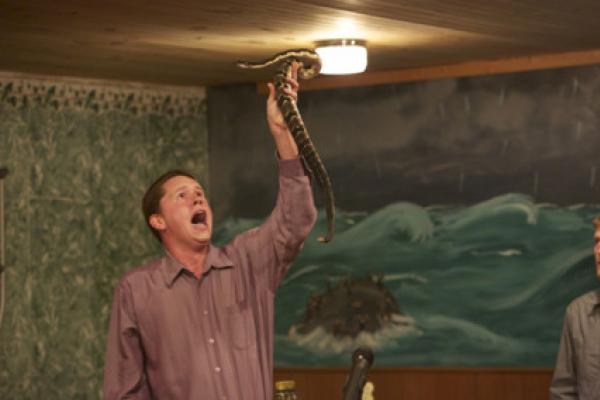The Baby Veronica case, named for the girl at the center of a contentious child custody dispute, has stirred powerful emotional responses from many groups, including some Christian evangelicals.
Motivated by their faith in God and a distrust of federal Indian policies, a few evangelical organizations are campaigning to abolish the federal Indian Child Welfare Act at the heart of the dispute.
Congress enacted the law in 1978 to address the abuses that separated Indian children from their families through adoption or foster care. The law gives related tribes a preference in custody proceedings involving Indian children.
After we had shared worship together, I recently had a short conversation with a soldier who had just become more directly aware of Jesus Christ’s call to “love our enemies.” His fervent answer to me as we discussed what we had just heard: “No problem; I can easily love a man while I am killing him!” We did not have time for more words together. I would have liked to ask him about his meaning of love.
Excommunicated Zambian Archbishop Emmanuel Milingo, who advocates for married priests within the Roman Catholic Church, said he has not split from Rome though many of the priests he ordained no longer see themselves as part of the church.
“We are not a breakaway church,” said Milingo, who married Maria Sung, a Korean acupunturist, in 2001. “Within the Catholic Church married priests existed for a thousand years.”
I have been literally disgusted at how “politics” has dominated the media’s response and coverage of the Syria crisis. Millions of lives are at stake, as is the security of one of the most critical regions of the world. But all many of our media pundits can talk about is how this affects politics — i.e., how this could weaken President Obama’s second term or what this might mean for Obamacare.
I heard the same media blathering when I was in London last week when the Syria chemical weapons crisis broke through. “Does the vote in Parliament hurt the Prime Minister and help his opposition?” “Is the Labor Party now up, and the Tory down?”
Who cares?!
Even as the world’s powers grasped for a last-minute resolution to the crisis in Syria, it remained an open question whether any amount of diplomacy could prevent the conflict from claiming at least one more victim: the classic Christian teaching known as the “just war” tradition.
The central problem is not that the just war doctrine is being dismissed or condemned, but that it is loved too much. Indeed, both sides in the debate over punishing the Syrian regime for using chemical weapons are citing just war theory, but are reaching diametrically opposed conclusions.
Once again breaking with traditional Vatican protocol, Pope Francis on Wednesday penned a long letter to the Italian liberal daily La Repubblica to affirm that an “open dialogue free of prejudices” between Christians and atheists is “necessary and precious.”
Francis’ front-page letter was a response to two open letters published in previous months by Eugenio Scalfari, the founder of La Repubblica and an avowed atheist.
The pope’s letter is especially notable for its open and honest assessment of the spiritual state of nonbelievers. And for an institution that long claimed sole jurisdiction on matters of salvation, Francis seems to open the door to the idea that notions of sin, conscience and forgiveness are not the exclusive domain of the Catholic Church.
If there were such a thing as “spiritual hazard pay” for columnists, I would be filing a claim after watching the first two episodes of the new series “Snake Salvation,” which debuts Tuesday, Sept. 10, on the National Geographic Channel.
God, I hate snakes. I find them utterly repellent; always have. When I was a toddler, my parents had to carry me out of the snake house at the zoo so I would stop screaming as if someone were trying to kill me.
Were it not for professional obligation — you’re welcome, by the way — you would sooner have found me shaving my head with a straight razor than watching a couple of hours of television dedicated to snake handling and its (alleged) spiritual import.






